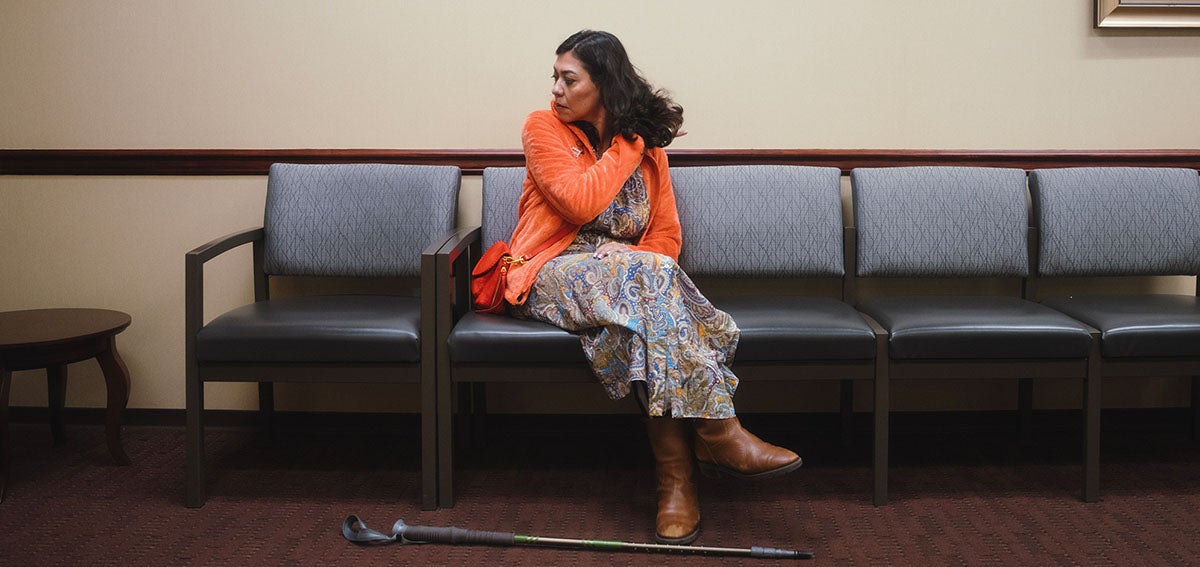View the Report
Jump to All Downloads & LinksRead the full version of this letter (PDF), which includes endnotes.
Submitted on June 19, 2019, via www.regulations.gov
Nancy Potok, Chief Statistician
Office of Management and Budget
RE: Comments to OMB-2019-0002-0001— Request for Comment on the Consumer Inflation Measures Produced by Federal Statistical Agencies
Dear Ms. Potok:
I am writing on behalf of the California Health Care Foundation in response to the Request for Comment on the Consumer Inflation Measures Produced by Federal Statistical Agencies (OMB-2019-0002-0001). The California Health Care Foundation is an independent, nonpartisan philanthropy that works to improve health and health care for all Californians. Because low-income Californians experience the biggest health burden and face the greatest barriers to care, our priority is to make sure they can get the care they need. We are especially focused on strengthening Medi-Cal, our state’s Medicaid program, the cornerstone of California’s safety net. We are also committed to finding better ways to meet the health care needs of the millions of people who remain uninsured in our state, including those Californians struggling to afford health coverage.
Thank you for this opportunity to offer comments on whether the Consumer Price Index for All Urban Consumers (CPI-U) should be replaced with another measure of inflation, such as the Chained Consumer Price Index for All Urban Consumers (C-CPI-U or chained CPU) or Personal Consumption Expenditures Price Index (PCE Price Index) for purposes of calculating the Census Bureau’s Official Poverty Measure (OPM). We strongly recommend that the OPM continue to be annually adjusted by CPI-U, as has been longstanding law and practice, and consistent with congressional intent.
The Request for Comments notes that you are not seeking input on the impact of changing the Health and Human Services (HHS) poverty guidelines, so we are not commenting on that issue. However, as acknowledged in the Request for Comments, HHS poverty guidelines are based on the OPM and are used to determine eligibility and benefits for numerous federal, state, and local government programs, including Medicaid, the Children’s Health Insurance Program (CHIP), the Affordable Care Act (ACA) marketplace subsidies, the Medicare Part D Low Income Subsidy, Supplemental Nutrition Assistance Program (SNAP), Women Infant and Children (WIC), and others. It is imperative that if OMB is considering any change to calculating the OPM — which, in turn, would affect determination of the HHS poverty guidelines — OMB undertake a detailed legal and policy analysis, including examining whether such a change is permissible under federal law; how a change would affect eligibility, benefits, and access to needed services to all federally funded programs that rely on the HHS poverty guidelines that are based on the OPM; and how the change would affect providers that furnish services to program beneficiaries. We strongly suggest such an analysis be conducted not just by OMB but by the various federal agencies administering the affected low-income programs. Such an analysis should be conducted using widely accepted methods with both findings and methodology made transparent and public. Also, it would be of critical importance for OMB to solicit public comments on the impact of such changes on HHS poverty guidelines through formal rulemaking.
Replacing the CPI-U with the chained CPI or PCE price index or similar measure would result in a lower OPM than would otherwise be the case, with the reductions growing larger each year, relative to current law. This means that the HHS poverty guidelines would also be lower than the guidelines would be under current law, with the severity of the ensuing cut increasing each year. For example, for Medicaid, this means the income eligibility thresholds for the program would be lower than they are under current law in any given year, leading to fewer low-income workers, children, parents, pregnant women, seniors, and people with disabilities able to qualify for Medicaid. Research from the Center on Budget and Policy Priorities projects that using chained CPI to adjust the OPM would, relative to current law, result in more than 300,000 fewer low-income children enrolled in Medicaid and CHIP by 2029, 250,000 fewer low-income adults enrolled in the Medicaid expansion, and 150,000 fewer low-income seniors and people on disabilities enrolled in the Medicare Savings Programs, under which Medicaid pays for Medicare premiums and/or cost-sharing charges.
The California Health Care Foundation is particularly concerned with the impact of such a change on the health and well-being of California’s families and their access to health coverage through Medi-Cal and Covered California, the state’s ACA marketplace. Researchers from the UCLA Center for Health Policy Research and the UC Berkeley Center for Labor Research and Education estimate that if chained CPI-U were to be adopted in 2021, by 2028:
- 30,000 adults and 30,000 children who would otherwise be enrolled in Medi-Cal would lose eligibility; and
- Over 1 million Californians with subsidized coverage through Covered California would receive smaller premium subsidies, and some would lose their subsidies entirely. A family of four earning an income of $80,000 would have to pay an additional $300 per year in premiums. Some of these Californians would also receive reduced assistance with out-of-pocket costs. For a California family with income just below 200% of the poverty line, this change could more than triple their deductible.
Additionally, some of the 3.7 million Californians enrolled in SNAP (called CalFresh in California) could lose access to the program, as could many of the Californians enrolled in dozens of other public programs which use the federal poverty line to establish eligibility or benefits.
As the researchers describe, “over time, millions of Californians would lose eligibility for benefits or receive reduced benefits, and that reduced assistance would translate to hundreds of millions of fewer federal dollars flowing into the state’s economy.”
Research tells us that comprehensive coverage and access to health care is the critical first step toward improved health for the individual and our society. The Institute of Medicine and a robust and longstanding body of evidence makes it clear that lack of insurance is associated with poorer health and earlier death. And Medicaid coverage has positive impacts on health, improves access to prescriptions, reduces financial hardship, and reduces preventable mortality — making the impact of loss of coverage starkly clear. Compared to uninsured Californians, our residents with Medi-Cal are 40% more likely to receive a routine checkup. They are also more likely to have a usual source of care that is a community clinic or doctor’s office. Research shows that access to coverage is linked to better health outcomes and increased productivity, as well as greater educational attainment for children.
Shifting to a slower-growing measure of inflation would very likely result in more uninsured Americans. Yet this is neither discussed nor analyzed in the Request for Comment, as would be necessary for responsibly considering such a major policy change.
At perhaps an even more basic level, there is no evidence that alternative measures such as chained CPI or CPE-Price Index would result in more accurate OPM, a measure meant to reflect the minimum level of resources to meet basic needs. Indeed, there is substantial evidence to suggest the contemplated new approaches would lead the OPM to be a less accurate measure of poverty. For example, the CBO notes that inflation may be higher for seniors because a greater share of their spending is on health care. And studies show inflation has risen faster for low-income households than overall, likely attributable to rising costs for rental housing. The California Budget Project cites research that has shown that costs for the overall bundle of goods typically purchased by low-income households have risen faster than costs for the goods typically purchased by higher-income households.
As described by the California Budget Project, the federal poverty line is already far lower than the basic cost to support a family, particularly in California, where the cost of living is high in many regions. For example, the 2017 statewide average cost of a basic family budget for a working single parent with two children is roughly three and half times the federal poverty line. Even in our relatively low-cost areas, the basic family budget is two and half times the federal poverty level, while in most expensive parts of the state it can be more than five times the federal poverty line. Slowing down the rate by which the poverty line is inflated each year would make the measure even less accurate as a measure of poverty for our state.
Any contemplation of changes to the OPM should build on existing research that suggests the official poverty measure is too low for most types of households, and that shrinking the inflation adjustment will make it less accurate, not more. Such an evidence-based contemplation would consider the rates of inflation for low-income households versus the population, and the impact changes would have on eligibility for federal health, nutrition, and other basic assistance programs. Prior to moving forward with any changes, OMB should undertake a serious analysis of each of these issues, publish its findings, and solicit public comment.
Changing the method for updating the poverty line to a slower-growing inflation factor such as chained CPI or CPE Pride Index would undermine the ability of low-income Californians to get the health care and other basic support they need. The ripple effects on the safety net, the state economy, and the health of the larger population would be highly detrimental. We urge you to reject any shift to a slower-growing inflation factor in the OPM.
Respectfully submitted,
Sandra R. Hernández, MD
President & Chief Executive Officer
California Health Care Foundation
Authors & Contributors





